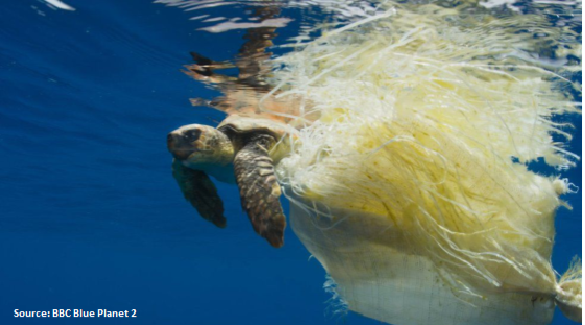Paradigm shifts start slowly at first, and it is easy to miss them. But then one day, they suddenly become obvious, and it becomes a scramble to catch up. That’s what happened on the waste plastic issue last week, when China decided to take action. As official news agency, Xinhua, reported:
- “The policy measures proposed in this opinion basically cover the entire process and various links of plastic product production, circulation, use, recycling, and disposal, reflecting a system of full life cycle management
- “Policy adjustments target both traditional areas and emerging areas such as e-commerce, express delivery, and takeaway
- “(They focus on) plastic products that are currently in large use, relatively prominent, and strongly reflected in society, and take the lead in prohibiting or restricting production, sales, and use in some areas and regions
- “It is important to point out that implementation will inevitably affect the production of some industries and the convenience of residents’ lives”
My former company, ICI, invented polyethylene (PE) back in 1933. PE is now the largest single polymer with volume close to 100m tonnes. More than half of this goes into single-use applications. Yet in a major failure of the imagination, very few of us in the industry ever thought until recently about the waste this caused. As the BBC reported after China’s decision:
“China has for years been struggling to deal with the rubbish its 1.4 billion citizens generate. The country’s largest rubbish dump – the size of around 100 football fields – is already full, 25 years ahead of schedule.”
And we are all still ignoring the economic waste involved. Crude oil costs $60/bbl, and it costs lots more dollars to refine it/ship it/process it. And then we simply throw away the single- use plastic bags and packaging that we bring home from the shop or unwrap from the internet delivery.
Plus, of course, there is the marine waste problem, so vividly brought to life in the photo from Sir David Attenborough’s ‘Blue Planet 2 television series.
THE PLASTICS INDUSTRY MUST NOW TAKE UP THE CHALLENGE

China uses around 1/3rd of all the PE produced today. So its decisions are a game-changer for the entire global industry.
Nobody wants to do away with plastics themselves. They are unique materials – lightweight, resilient, usually non-reactive and waterproof. They have much lower carbon intensity than competing materials such as metals, and they play an incredibly valuable role in our daily lives. Food packaging, for example, is proven to reduce food losses, wastage and health risks from contamination.
But the business model for producing plastics is broken, and needs to be challenged:
- Does it really make sense to keep producing more oil and gas, with all the CO2 emissions this involves, and then throw away the end product?
- If not, why aren’t we investing the necessary dollars to set up Resource Centres (as pictured) around our cities and towns, to recycle this waste plastic back into usable products?
- And at the same time, why aren’t we developing robust contingency plans for optimising the legacy issues from the old business model
As I noted here a year ago, There’s a great future for the European plastics industry in recycled plastic, this opportunity is not just about China. Last month, new EU Commission President Ursula von der Leyen launched the EU’s Green Deal, noting:
“I am convinced that the old growth-model that is based on fossil-fuels and pollution is out of date, and it is out of touch with our planet. The European Green Deal is our new growth strategy – it is a strategy for growth that gives more back than it takes away. And we want to really make things different. We want to be the frontrunners in climate friendly industries, in clean technologies, in green financing.”
The key issue is summed up by new BP CEO, Bernard Looney. He warned at the weekend that the oil industry has to start:
“Going beyond small, ineffectual bets on low carbon investments.”
The plastics industry similarly has to step up from today’s relatively “small, ineffectual bets”. Otherwise it will run out of time to meet the 2025 recycling deadlines being set by an increasing numbers of brand owners and governments.
All paradigm shifts create Winners and Losers. Losers will focus on recession risks and the potential impact of the corona virus. But Winners will know they need to do more than focus on these risks, if they want to generate long-term revenue and profit growth.
They will be the ones who start investing realistic sums of money, today, to turn the concept of the circular economy into reality.

